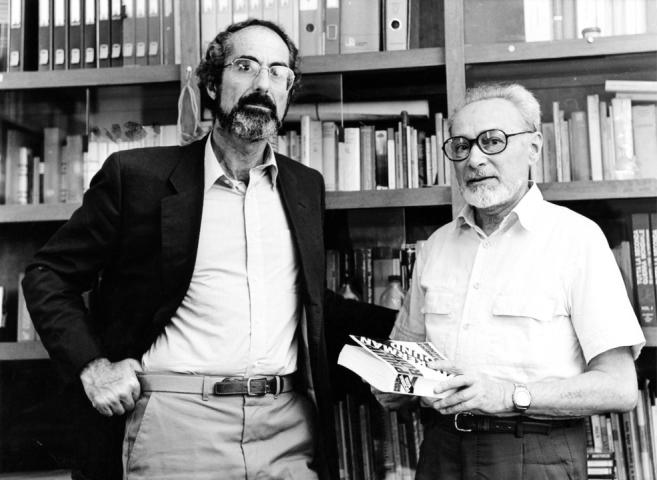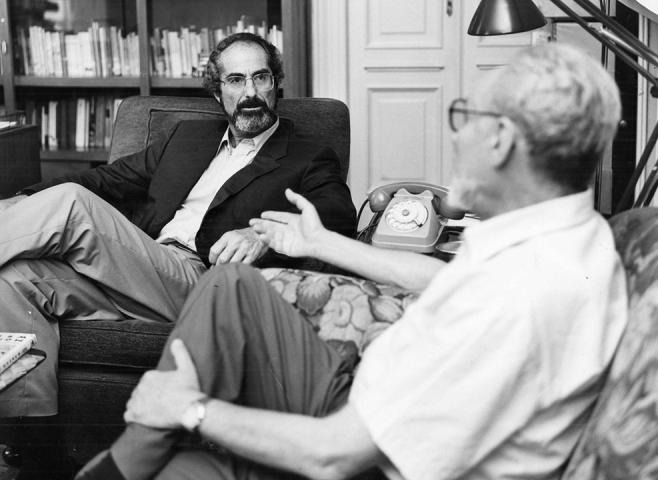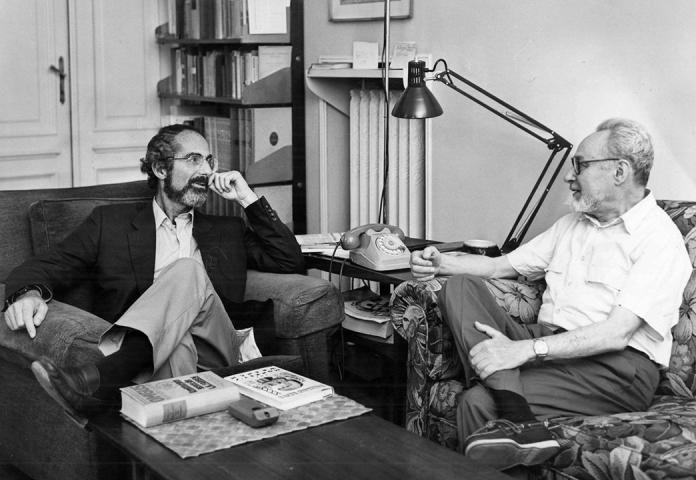Conversations with Primo Levi
Some of the most interesting questions asked of Primo Levi and by him as well as his answers in over twenty five years of interviews and conversations.
Now users can access these too according to their topics and be provided with references for further study. Over 300 interviews with Primo Levi have been found, beginning with his first appearance as interviewee in 1961, and stopping only with his death in 1987. In the beginning, there were mainly questions about his experience as a deportee, narrated in his first two books. Then, his role as witness gradually became the focus of his relationship with the many students he met with more and more frequently. As this happened, the questions shifted focus to his “amphibious” nature as chemist-writer and his relationship with literature and other writers. However, there were very many other questions about politics, ethics, science, and Judaism as well as even music, science fiction and the future. Levi never refused to give an answer and often answered in a surprising way with the intelligent humility of a tirelessly curious person who was always used to reflecting on the world around him.

Primo Levi with Philip Roth in his Corso Re Umberto apartment in Turin. September 6 1986. Copyright La Stampa

Primo Levi with Philip Roth in his Corso Re Umberto apartment in Turin. September 6 1986. Copyright La Stampa

Primo Levi with Philip Roth in his Corso Re Umberto apartment in Turin. September 6 1986. Copyright La Stampa
Even though these interviews are little known and seldom used, they are tools that are precious for getting to know Primo Levi. The topics of the third volume of complete works in Italian, Opere complete, have been indexed thanks to Camilla Veneziani’s painstaking work for the Center. Thus it has become possible to “interview” Primo Levi directly. Users can choose the topics they are most interested in and get the authentic answers that Levi gave over the course of years. They can access precise bibliographic references that can help them go deeper into the individual answers by placing them more precisely inside of the context where they were formulated in the various interviews they were drawn from.
